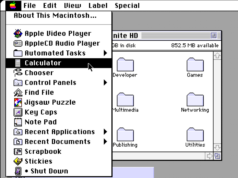
As I sit here eating rich, juicy dumplings made by a dedicated human chef, I’m pondering—lamenting?—AI’s role in the food industry. Specifically, I’m stewing over one small, wholesome corner that AI has been butting into: cookbooks. AI-generated recipes and cookbooks aren’t new by any means, but they’re more prevalent than ever, and better at impersonating human authors than before. These AI cookbooks are sneaky, but they’re not perfect, and you should be able to decide if that’s what you really want to buy. Luckily, there are a few red flags to keep an eye out for.
By the way, the dumplings were from East Wind Snack Shop. The human chef and owner, Chris Cheung, wrote a cookbook, Damn Good Chinese Food, and it’s for sale here along with some other fantastic cookbooks:
An AI-generated cookbook in the wild
A recent post on X from Matthew Kupfer shows just how creepy AI cookbooks can be. It’s mostly hilarious, but quickly becomes alarming when you realize someone used AI to generate a bio and a photo of the “author.”

Credit: @Matthew_Kupfer/X
Clearly, AI-generated recipes and cookbooks are already out there. That’s fine—besides the knowledge and work that it silently scraped from all the recipes on the internet—it is what it is. Even companies like Instacart have taken a dip in AI waters to generate recipes, but at least they’re up front about it. They also note that the recipes “may not be perfect” due to the nature of its creation. AI recipes are untested, likely unedited, and there’s a possibility the meal comes out weird in some way, but hopefully not inedible.
But the dubious recipe quality is just one part of the problem. Cookbooks aren’t just collections of recipes. They’re years of hard work, mistakes, successes, incredible photography, experiences, and stories. Those stories are woven into recipes that share a person’s life. Maybe I’m a little sensitive because I’m an aspiring cookbook author myself, but it’s the impersonation that is unsettling. The lengthy prose of manufactured human experience, and the faux inspiration—you’ll have to excuse me, but I’ve lost my appetite.
Your AI is showing
Since you can’t rely on the usual tricks—checking for the author’s photo or only searching for hardcover books—you might have to dig a little deeper, and trust your gut. Here are a few things to look out for when you’re vetting a cookbook.
Odd cover claims
While the title might seem harmless, like The Complete Crock Pot in the X post, the subtitle, or other quips and promises on the cover can be a dead giveaway. For example, “2000 days easy delicious recipes” sounds like an extreme amount of days, and it seems to be missing a word.
Clunky phrasing or repeats
Speaking of missing words, this tip is from our post on how to tell if you’re chatting with a bot, and it’s applicable for cookbooks too. Look out for grammatical missteps, sure, but also oddly robotic phrasing and repetition. As Jeff Somers notes in the aforementioned post, “Even the best conversational AI often has trouble with the weird complexities and contradictions of language.”
If you feel like a sentence just doesn’t sound right, like “This electrical cooking equipment is used to make meals, particularly when you want to leave your cooking uncontrolled for hours,” you’re not being judgmental. This is not how most folks would describe crockpot cooking.
Repeated phrases are also a hallmark of AI writing. I intentionally switch up vocabulary when I write because I know it’s boring to read the same words again and again, but AI doesn’t get bored. It gets even. Just kidding, it’s awful at alternate phrasing. You wouldn’t believe how many times the section “What is Crock-Pot?” has the exact, or nearly identical, phrasing for “a crock pot, or slow-cooker, is a pot made of ceramic…” It’s a lot.
Publishing houses versus self published
Many AI-generated cookbooks are sold online, and they are self published. You can probably figure out why. As of right now, most established publishing houses are interested in making deals with human authors. It’s a shame because there are a lot of self-published authors out there who write great books, and big publishers can make it difficult for even great books to be seen. In the case of cookbooks though, look for what publishing company it’s from; if it’s listed as “self published” or “independently published,” be wary.
Errors with key ingredients
If you can, look closely at some of the recipes in the book. While AI doesn’t usually make egregious measurement mistakes, like suggesting two cups of salt, it can omit things. If a recipe is titled “Barley Chicken Salad with Fresh Herbs,” and there are no herbs or barley to be found in the ingredient list, you might be dealing with an AI cookbook. Likewise, if a cookbook claims to be for special diets, like a low-glycemic cookbook or this vegan cookbook that got ripped off by AI, keep a lookout for recipes that don’t fit the diet.
AI might hurt our human feelings when it imitates us, but this type of error is where untested, unedited recipes get dangerous. A vegan is likely to catch butter or mozzarella listed in a recipe, but beginners following a low-glycemic recipe might not catch a starch error.
Tips for cookbook shopping success
Don’t be fooled by an author picture and biography
AI generates photos with terrifying ease. Read here for tips on identifying pictures of fake humans (two words: errant earrings). If you’re not sure, you can also look up the author. AI “authors” will have no history besides the cookbook, so you won’t have to do much research.
Check for AI-generated reviews
AI reviews look suspiciously alike—like word-for-word alike—and 20 or 30 reviews will post on the same date, or within a tight time frame. If you see that, the next step is to click on the one- or two-star reviews. Those are probably humans and they’re probably telling you the cookbook is AI generated.
Shop in a bookstore
A what? A brick and mortar bookstore. If you’re buying new, then you can rest assured that bookstores like Warwick’s and Greenlight Bookstore are buying their stock from reputable publishers. If you’re buying used, then at least you can flip through the book and thoroughly check for the red flags mentioned above. Plus, you’ll be supporting a real-life bookstore, and that’s nice too.








